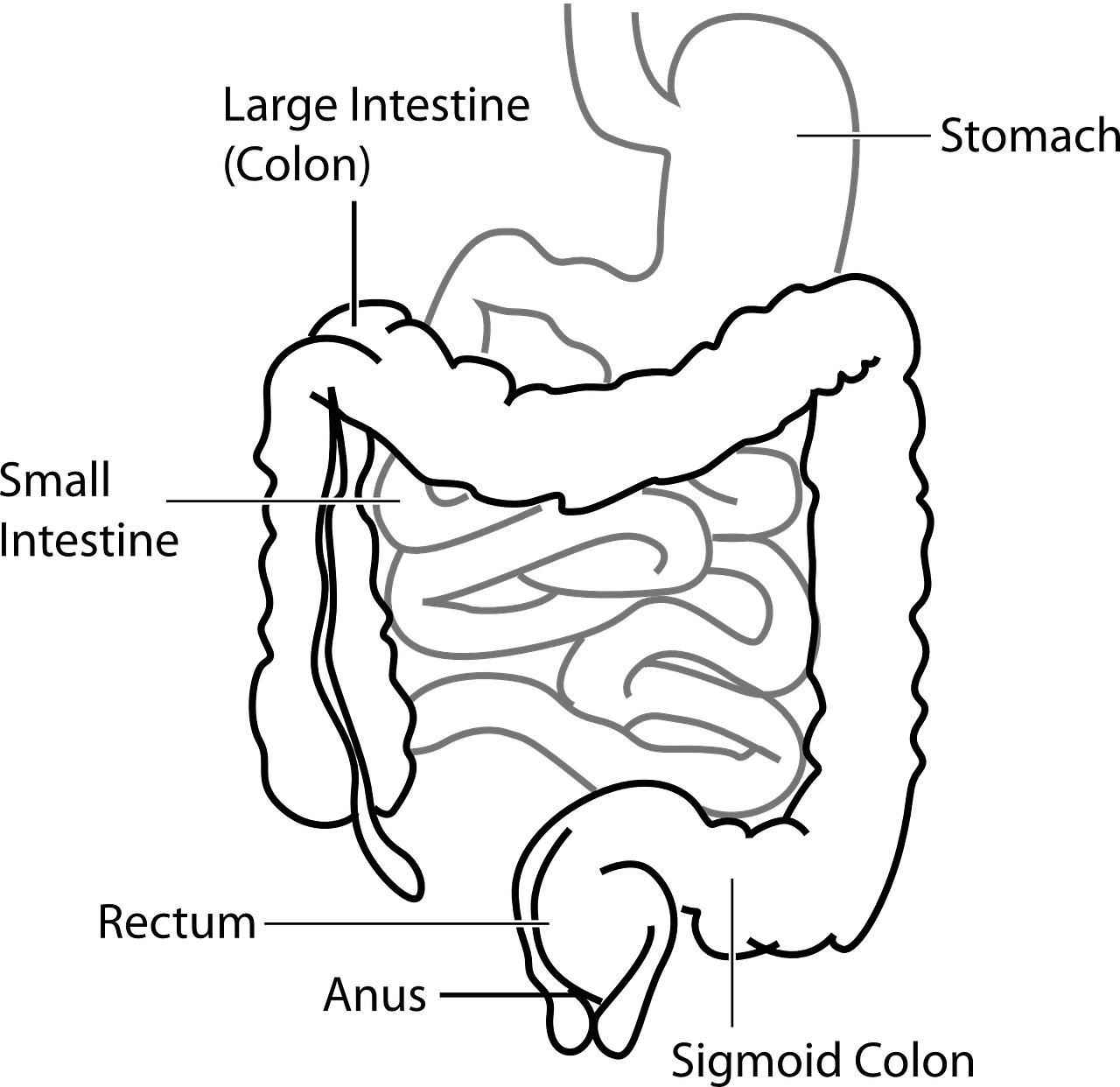3 Ways to Fix Your Irritable Bowel Syndrome
Are you looking for a way to fix your irritable bowel syndrome and improve your digestion? This article will look at three different ways to approach this for those that are new to this diagnosis, and those that have a more chronic case of IBS. The article is broken down into the following three sections:
- Simple approach
- Strategic approach
- Traditional approach
The first thing to think about when you are trying to fix your Irritable Bowel Syndrome or improve your digestion is that not all cases are the same. With IBS there are different variations of it and these variations have different causes. IBS is not just one thing. For instance, there is IBS-C and IBS-D. These differentiate the people that have more constipation type and more diarrhea type. However, even within these categories there are different variations and causes. Despite this, we often think about, discuss, and treat it as one thing. To some extent it does have similar causes but they're not always exactly the same. So before we can look at the different things that are impacting your iBS and how to improve digestion, we want to ask what is IBS to begin with. Then we will look at the different variations and causes.
IBS is the term given to people that have significant digestive distress and all other natural causes have been ruled out. IBS stands for Irritable Bowel Syndrome. It is a syndrome because basically it's a bunch of symptoms but there's no known specific pathology that applies to all cases of IBS. Typically people with this diagnosis have seen a traditional Gastroenterologist. These doctors work to rule out that you do not have Ulcerative Colitis, Crohn's Disease, GERD, Celiac's Disease, Cholecystitis, some other gallbladder issue, or major digestive problem. So all the known or solid diagnoses that have clear treatment paths in traditional gastroenterology get looked at and ruled out first. Once these are ruled out, you are left with the diagnosis of IBS. Even though, as we said IBS is not all the same for everyone.
Traditional Way to Approach IBS
Traditional doctors usually do a good job at pin-pointing one of these other diagnoses and when your don't have these you get labeled with having IBS.
With this in mind it is not a bad idea to explore traditional digestive diagnostics to see if you have one of these other things. So, the first way to approach curing your IBS, is to get a traditional GI doctor evaluation. You can also go to your primary care doctor and rule some of these things out. If you do have these other digestive problems (mentioned above) and not IBS, there are alternative ways to treat these too.
If you end up with the diagnosis of IBS, it is best to approach it with more curiosity than the common conventional medicine approach. This conventional approach is changing to include more modern testing for IBS, however. Depending on the doctor that you see they may include some of the approaches listed below.

Simple Way to Fix Your IBS
Now let's say you have ruled out all these other organic or underlying pathologies (listed above) that may be causing your digestive problems. What do you do next?
I break this into two categories simple and strategic. Depending on how long you have had the digestive problem or what you have tried you may decide to do a simple approach or a more strategic one.
Usually if it's a newer diagnosis or you haven't tried a whole lot of things you might want to try the simple approach. This approach does not require a whole lot of guidance. Whereas the strategic may be for somebody that has more chronic digestive problem and already tried a few things already. Let's first take the simple approach.
This approach focuses on foods that might be contributing to your digestive problems. Foods like dairy gluten and others can have a negative impact on your digestive system and even cause IBS like symptoms. I like to break the foods that do this into three main categories:
- Food sensitives
- High Histamine
- High FODMAP's
So these are three categories of foods you can avoid to see it improves your digestion. These are diet experiments that you can do to see how these foods are impacting your digestion. Keep in mind, there is some overlap between the categories. You certainly would not want to eliminate all three of these at once but it may be an experimental thing that you may find beneficial. Let's look at each in a little more detail.
Food sensitivities
Many people have heard of the Autoimmune Protocol Diet (or AIP). This diet focuses on removing all the common food sensitives. It is considered a hypoallergenic diet as it removes a lot of the food culprits that typically cause inflammation and GI distress. Other people may know this diet as the elimination diet etc. You can also perform a blood test for food sensitivities.
High Histamine
High histamine foods are another category and these do have some overlap with the autoimmune protocol list of foods. Some of them are high histamine food but not all of them are. With high histamine foods there's no consensus on which foods are always high. As a result this can be a little bit tricky to figure out at first. High histamine foods are typically more of problem for people that also have moderate to severe allergies, in addition to having digestive symptoms.
High FODMAP's
FODMAP stands for Fermentable Oligo-Di-Monosaccharides And Polyols. An easy way to think about this diet is that these foods are highly fermentable carbohydrates. There is a lot of information on high FODMAP foods, so it is pretty easy to research. The only thing is there are a lot of foods in that category. So you generally want to look and see how am I responding to these.
Remember that foods that trigger your IBS symptoms may be a signal that something deeper is going on with your microbiome. This is specifically true with high FODMAP foods. It could be a signal that you actually have bacterial overgrowth or some microbial imbalance. If this is the case you probably want to take care of that rather than just eliminating the foods. The reason is the diet itself is not really getting at the underlying cause. With that being said, if you do find benefit from removing these, it may be a temporary and partial solution. At some point you would want to get some support from a doctor to actually test and treat you for the SIBO or whatever microbial imbalance is present.
Fix Your IBS Strategically
The third way to fix your Irritable Bowel Syndrome is strategic. To make sure you are not missing anything, I recommend testing for microbiome issues first. The other testing to consider are food sensitivities, leaky gut, sampling of your microbiome, pathogenic microbes, SIBO, and candida.
You don't need to do all these at once but you want to think about them strategically (see specifics below). Once you've done these tests and you have some positives test results, the treatment is usually pretty straightforward. How you sequence the treatments together is not always obvious, however. Testing does help clarify what's going on and what you should do in a basic sense. It doesn't always give 100% clarity into what's going on with your body now and what happens when you start the treatment. Because these test are often expensive to do, most people will not be running these test every 3 months or even 6 months. So how do you know what to do when you are not getting the desired results?
Be Strategic
Here are some general rules to follow. Start by treating or ruling out that you don't have anything seriously compromising to your body. These include microbial infections or imbalances. You want to look and see if you have any of those first. You might want to do the SIBO test, look for Candida antibodies in your blood, or do some other stool test to look for pathogenic or potentially pathogenic microbes.
If those are present then obviously you will treat those. When you are treating those how do you know when the bugs are gone or the imbalance is fixed? Some people get worsening of symptoms during the treatment course. This is a sign you should likely pause the treatment temporarily but it typically tells you that this is a significant problem for you body.
What you are looking for through the treatment is either a dramatic improvement in your symptoms, like fifty or seventy-five percent or flare-ups or worsening of your symptoms. When there are flare-ups you want to back off and support the underlying digestive function.
Sometimes depending on where those flare-ups are occurring, the rest of the body's cellular function needs support as well. The amount and duration of treatment pressure to apply is not a one size fits all. Similarly the amount of cellular support you give to the person at any given time needs to be specific for them. You can base this off of symptoms, genetics, or test results.
Once the microbial issues have been ruled out or eliminated, then we would move on to things like genetics or other food related issues. So these are some strategic ways to approach finding the cause of your IBS and improving your digestion.
Hopefully that gives you some better clarity on how to fix or cure your irritable bowel syndrome. Do have questions about any of the content here or something that's going on with your IBS? Ask it in the comment section below. If you want help figuring out a strategy to fix your Irritable Bowel Syndrome, click on the link below to get started.




















